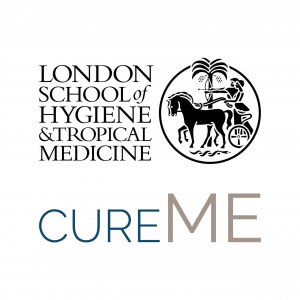It is a strange time to be writing about the work of the UK ME/CFS Biobank (UKMEB); as I write, our office has been closed for over two months and clinical visits have been paused indefinitely; samples cannot currently be distributed. COVID-19 has created many challenges to our work and the research of many others, but it may also make the work of the Biobank more important than ever and provide various opportunities for future studies and discoveries. At this time, we would like to draw your attention to the rich dataset we have available to researchers worldwide, that may inspire new research applications during this period when existing lab work may be paused.

The UKMEB is Europe’s first biobank devoted to ME/CFS. We have been collecting since 2013, and now have a repository of over 30,000 aliquots of blood, collected from people with ME, multiple sclerosis, as well as healthy controls. We have recruited people via the NHS, from partner organisations, and from the public.
Our team is very proud that, thanks to funding from the National Institutes of Health in the US, we have been able to include people severely affected by ME/CFS as participants in the UKMEB. Our research nurses make home visits to those who are unable to travel and therefore often restricted from participation in ME/CFS studies.
Many Biobank participants are asked to have repeat assessments and samples taken, thus forming a long-term cohort of individuals enabling clinical and laboratory findings to be correlated with factors such as the presence of viral infections, gene expression and immunological status.

Our research at the LSHTM is very broad, and ranges from reviews of clinical practice (two of our team are on the committee for reviewing the NICE guidelines) to our research on the immunology and virology of ME/CFS. There is research happening in the UK, Europe, Latin America, Australia and North America all using samples from the UKMEB. Over the last few years, samples have been sent to a variety of places overseas, for example, to Brazil (to do work on retroviruses), to Israel, and to Vermont in the USA (for studies on antibodies). In addition, closer to home, these samples have been sent to Oxford, Edinburgh and Dundee, to work with scientists like Dr Karl Morten, Prof Chris Ponting and Prof Faisel Khan.
See the list of our current Biobank users here: https://cureme.lshtm.ac.uk/researchers/our-collaborative-researchers/.

In 2018, we won 2nd place in Biobank of the Year. The UKMEB is a rich resource; making these samples available to other researchers increases the chances of achieving much-needed breakthroughs in the aetiology and treatment of ME/CFS, in the most cost-effective manner. Full details of our holdings in both data and blood samples are listed in the tables below:
UKMEB participants with comprehensive data and bloods stored
| Time points assessed | People with ME/CFS: mildly/ moderately affected (n) | People with ME/CFS: severely affected (n) | Healthy controls (n) | People with MS (n) |
| 1 time point | 263 | 79 | 136 | 69 |
| 2 time points | 126) | 66 | 78 | 47 |
| 3 time points | 29 | 38 | ||
| 4 time points | 7 | 32 | ||
| 5 time points | 2 | 24 |
Details of sample and data availability
| Biological samples | Data: Laboratory | Data: Questionnaires | Data: Clinical examination |
| Whole blood Serum Plasma PBMCs Blood for RNA extraction (Pax Gene) Red Blood Cells (RBCs) | Routine lab tests Immunology Virology (CMV and EBV status) | Clinical data (symptomology) Socio-demographic: Family health history Personal health and occupational Potential risk factors SF-36 V2TM General Health Questionnaire (GHQ) Fatigue/Pain Analog Scales Epworth Sleepiness Scale Energy Fatigue Severity Scale (FSS) | Anthropometric measurements Dipstick urinalysis Blood pressure, heart rate, pulse oximetry Hand grip |
Further information on accessing the Biobank and these samples is detailed on our website:
https://cureme.lshtm.ac.uk/researchers/accessing-the-biobank/.
If you would like to discuss the process further, please email Caroline Kingdon, at caroline.kingdon@lshtm.ac.uk.
Finally, we are continually thankful for the generosity of our participants, who have come back time and time again to help make this science possible.
– The CureME Research Team






 ) and a message about #MillionsMissing with your own networks. Desktop: Download by right clicking on the image or clicking on the download icon in the bottom right corner of the image. Mobile:
) and a message about #MillionsMissing with your own networks. Desktop: Download by right clicking on the image or clicking on the download icon in the bottom right corner of the image. Mobile: